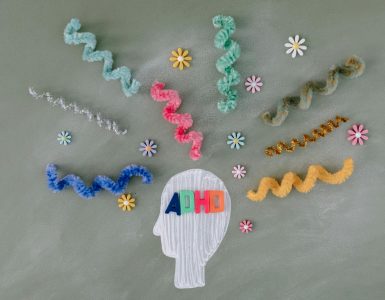Ever wondered why you make the choices you do? Why you feel the way you feel? Psychology isn’t just about diagnosing problems; it’s about understanding the fascinating, often illogical, blueprints that guide our thoughts, feelings, and actions. It’s about uncovering the hidden architects shaping our lives, often without us even realizing it.
The Power of Priming: Your Brain’s Secret Setup
Think of your brain as a computer, constantly running programs in the background. Priming is like subtly altering the settings of those programs before you even start using them. Exposure to certain stimuli can influence your subsequent behavior, often without conscious awareness. For example, studies have shown that exposing people to words associated with elderly people (like “Florida” or “wrinkle”) can actually make them walk slower afterwards! Their brains, primed by the words, unconsciously adopted a slower gait. It’s a mind-bending demonstration of how our environment subtly shapes our actions.
The Framing Effect: How Words Shape Reality
The way information is presented profoundly impacts how we interpret it. This is the framing effect. Imagine two advertisements for ground beef: one highlights that it’s “90% lean,” the other that it’s “10% fat.” Both describe the same product, but the “90% lean” version is far more appealing, despite being technically equivalent. The framing effect influences everything from marketing to political campaigns, demonstrating how easily our perceptions can be manipulated by skillful word choices.
Cognitive Biases: Our Minds’ Built-in Shortcuts (and Their Pitfalls)
Our brains are wired for efficiency. We use shortcuts, or cognitive biases, to process information quickly. While often helpful, these biases can lead to systematic errors in judgment. Confirmation bias, for example, is our tendency to seek out or interpret information that confirms our pre-existing beliefs while ignoring contradictory evidence. This explains why people can hold onto strongly held beliefs even in the face of overwhelming counter-evidence. Imagine a staunch supporter of a particular political party. They might only read news sources and engage in discussions that confirm their pre-existing beliefs, thus reinforcing their biases even if those beliefs lack factual foundation. How Does Music Affect the Brain?
Another common bias is the availability heuristic, where we overestimate the likelihood of events that are easily recalled. Vivid memories of plane crashes, for example, often lead people to overestimate the risk of flying, despite the statistically low probability of accidents. These heuristics are mental shortcuts which, although often helpful in navigating our complex world, can lead to flawed interpretations of reality.
The Bystander Effect: The Diffusion of Responsibility
The infamous case of Kitty Genovese, where multiple witnesses failed to intervene during a brutal attack, highlighted the bystander effect. This phenomenon demonstrates how the presence of others can decrease the likelihood of individuals helping someone in need. The responsibility is diffused among the bystanders, making each individual feel less accountable to act. Numerous experiments have demonstrated this effect. The more people present, the less likely anyone is to step in, even in emergencies.
The Milgram Experiment: Obedience to Authority
Stanley Milgram’s famous experiment shocked the world by revealing the surprising levels of obedience people demonstrate to authority figures. Participants were instructed to administer increasingly intense electric shocks to a “learner” (who was actually an actor) for incorrect answers. A surprisingly high percentage of participants obeyed the experimenter’s instructions, even when the learner appeared to be in significant distress. This experiment highlights the powerful influence of social hierarchies and the potential for individuals to commit harmful acts when instructed by authority.
The Asch Conformity Experiments: The Power of Peer Pressure
Solomon Asch’s conformity experiments showcased the pressure to conform to group norms, even when those norms are clearly wrong. Participants were asked to judge the length of lines, with a group of confederates (actors) deliberately giving incorrect answers. A significant portion of participants conformed to the group’s incorrect response, demonstrating the powerful influence of social pressure on our judgments.
The Halo Effect: How One Trait Colors Our Perception
Have you ever met someone attractive and instantly assumed they were also intelligent and kind? That’s the halo effect in action. It’s our tendency to let one positive trait (like attractiveness) influence our overall perception of a person, often overshadowing other, possibly negative, traits. This bias can affect everything from hiring decisions to personal relationships. The converse also holds true – a negative trait could color our overall view of someone negatively.
The Psychology of Persuasion: Unveiling the Techniques
Understanding the principles of persuasion is crucial in navigating the world of advertising, sales, and even relationships. Techniques like reciprocity (doing something for someone to increase their willingness to comply later), scarcity (making something seem more desirable by highlighting its limited availability), and authority (using credible figures to support a claim) are commonly employed tactics that exploit our psychological tendencies.
Conclusion: The Ongoing Exploration
Psychology is a fascinating journey into the depths of the human mind. By understanding the hidden patterns that shape our thoughts, feelings, and behaviors, we gain a deeper appreciation for the complexities of human nature and can make more informed choices in our daily lives. The field continues to evolve, with new discoveries constantly reshaping our understanding of the invisible architects that shape our experiences.
























Add comment